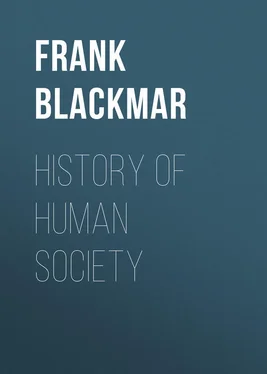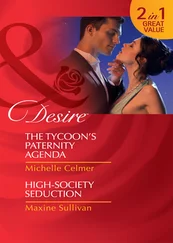Frank Blackmar - History of Human Society
Здесь есть возможность читать онлайн «Frank Blackmar - History of Human Society» — ознакомительный отрывок электронной книги совершенно бесплатно, а после прочтения отрывка купить полную версию. В некоторых случаях можно слушать аудио, скачать через торрент в формате fb2 и присутствует краткое содержание. ISBN: , Жанр: foreign_antique, foreign_prose, на английском языке. Описание произведения, (предисловие) а так же отзывы посетителей доступны на портале библиотеки ЛибКат.
- Название:History of Human Society
- Автор:
- Жанр:
- Год:неизвестен
- ISBN:http://www.gutenberg.org/ebooks/30610
- Рейтинг книги:3 / 5. Голосов: 1
-
Избранное:Добавить в избранное
- Отзывы:
-
Ваша оценка:
- 60
- 1
- 2
- 3
- 4
- 5
History of Human Society: краткое содержание, описание и аннотация
Предлагаем к чтению аннотацию, описание, краткое содержание или предисловие (зависит от того, что написал сам автор книги «History of Human Society»). Если вы не нашли необходимую информацию о книге — напишите в комментариях, мы постараемся отыскать её.
History of Human Society — читать онлайн ознакомительный отрывок
Ниже представлен текст книги, разбитый по страницам. Система сохранения места последней прочитанной страницы, позволяет с удобством читать онлайн бесплатно книгу «History of Human Society», без необходимости каждый раз заново искать на чём Вы остановились. Поставьте закладку, и сможете в любой момент перейти на страницу, на которой закончили чтение.
Интервал:
Закладка:
From the foregoing it may be said that civilization in its fulness means all of the acquired capabilities of man as evidenced by his conduct and the material products arising from his physical and mental exertion. It is evident that at first the structure called civilization began to develop very slowly and very feebly; just when it began it is difficult to state. The creation of the first utility, the first substantial movement to increase the food supply, the first home for protection, the first religious ceremony, or the first organized household, represents the beginnings of civilization, and these are the landmarks along the trail of man's ascendency.
Progress Is an Essential Characteristic of Civilization . – The goal is never reached, the victory is never finally achieved. Man must move on, ever on. Intellect must develop, morals improve, liberty increase, social order be perfected, and social growth continue. There must be no halting on the road; the nation that hesitates is lost. Progress in general is marked by the development of the individual, on the one hand, and that of society, on the other. In well-ordered society these two ideas are balanced; they seek an equilibrium. Excessive individualism leads to anarchy and destruction; excessive socialism blights and stagnates individual activity and independence and retards progress. It must be admitted here as elsewhere that the individual culture and the individual life are, after all, the highest aims. But how can these be obtained in modern life without social progress? How can there be freedom of action for the development of the individual powers without social expansion? Truly, the social and the individual life are complementary elements of progress.
Diversity Is Necessary to Progress . – If progress is an essential characteristic of modern civilization, it may be said that diversity is essential to progress. There is much said about equality and fraternity. It depends on what is meant by the terms as to whether these are good sayings or not. If equality means uniformity, by it man is easily reduced to a state of stagnation. Diversity of life exists everywhere in progressive nature, where plants or animals move forward in the scale of existence. Man is not an exception to the rule, notwithstanding his strong will force. Men differ in strength, in moral and intellectual capacity, and in co-operating ability. Hence they must occupy different stations in life. And the quality and quantity of progress are to be estimated in different nations according to the diversity of life to be observed among individuals and groups.
What Is the Goal of Civilized Man? – And it may be well to ask, as civilization is progressive: What is our aim in life from our own standpoint? For what do men strive? What is the ultimate of life? What is the best for which humanity can live? If it were merely to obtain food and clothes and nothing more, the question could be easily answered. If it were merely to train a man to be a monk, that he might spend his time in prayer and supplication for a better future life, the question would be simple enough. If to pore over books to find out the knowledge of the past and to spend the life in investigation of truth were the chief aims, it would be easy to determine the object of life. But frequently that which we call success in life is merely a means to an end.
And viewed in the complex activity of society, it is difficult to say what is the true end of life; it is difficult to determine the true end of civilization. Some have said it is found in administering the "greatest good to the greatest number," and if we consider in this the generations yet unborn, it reveals the actual tendency of modern civilization. If the perfection of the individual is the highest ideal of civilization, it stops not with one individual, but includes all. And this asserts that social well-being must be included in the final aim, for full and free individual development cannot appear without it. The enlarged capacity for living correctly, enjoying the best of this life righteously, and for associating harmoniously and justly with his fellows, is the highest aim of the individual. Happiness of the greatest number through utility is the formula for modern civilization.
Possibilities of Civilization . – The possibilities of reaching a still higher state of civilization are indeed great. The future is not full of foreboding, but bright and happy with promise of individual culture and social progress. If opportunities are but wisely used, the twentieth century will witness an advancement beyond our highest dreams. Yet the whole problem hinges on the right use of knowledge. If the knowledge of chemistry is to be used to destroy nations and races with gases and high explosives, such knowledge turns civilization to destruction. If all of the powers of nature under man's control should be turned against him, civilization would be turned back upon itself. Let us have "the will to believe" that we have entered an era of vital progress, of social improvement, of political reforms, which will lead to the protection of those who need protection and the elevation of those who desire it. The rapid progress in art and architecture, in invention and industry, the building of libraries and the diffusion of knowledge, the improvement of our educational system, all being entered upon, will force the world forward at a rapid pace, and on such a rational basis that the delight of living will be greatly enhanced for all classes.
Civilization Can Be Estimated . – This brief presentation of the meaning of civilization reveals the fact that civilization can be recounted; that it is a question of fact and philosophy that can be measured. It is the story of human progress and the causes which made it. It presents the generalizations of all that is valuable in the life of the race. It is the epitome of the history of humanity in its onward sweep. In its critical sense it cannot be called history, for it neglects details for general statements. Nor is it the philosophy of history, for it covers a broader field. It is not speculation, for it deals with fact. It is the philosophy of man's life as to the results of his activity. It shows alike the unfolding of the individual and of society, and it represents these in every phase embraced in the word "progress." To recount this progress and to measure civilization is the purpose of the following pages, so far as it may be done in the limited space assigned.
1. Are people of civilized races happier now than are the uncivilized races?
2. Would the American Indians in time have developed a high state of civilization?
3. Why do we not find a high state of civilization among the African negroes?
4. What are the material evidences of civilization in the neighborhood in which you live?
5. Does increased knowledge alone insure an advanced civilization?
6. Choose an important public building in your neighborhood and trace the sources of architecture of the different parts.
CHAPTER II
THE ESSENTIALS OF PROGRESS
How Mankind Goes Forward on the Trail . – Although civilization cannot exist without it, progress is something different from the sum-total of the products of civilization. It may be said to be the process through which civilization is obtained, or, perhaps more fittingly, it is the log of the course that marks civilization. There can be no conception of progress without ideals, which are standards set up toward which humanity travels. And as humanity never rises above its ideals, the possibilities of progress are limited by them. If ideals are high, there are possibilities of a high state of culture; if they are low, the possibilities are lessened, and, indeed, frequently are barren of results. But having established ideals as beacon lights for humanity to follow, the final test is whether there is sufficient knowledge, sufficient ability, and sufficient will-power to approximate them. In other words, shall humanity complete the trail of life, go on higher and higher grounds where are set the standards or goals to be reached; or will humanity rest easily and contentedly on a low level with no attempt to reach a higher level, or, indeed, will humanity, failing in desires for betterment, initiative, and will-power, drift to lower levels?
Читать дальшеИнтервал:
Закладка:
Похожие книги на «History of Human Society»
Представляем Вашему вниманию похожие книги на «History of Human Society» списком для выбора. Мы отобрали схожую по названию и смыслу литературу в надежде предоставить читателям больше вариантов отыскать новые, интересные, ещё непрочитанные произведения.
Обсуждение, отзывы о книге «History of Human Society» и просто собственные мнения читателей. Оставьте ваши комментарии, напишите, что Вы думаете о произведении, его смысле или главных героях. Укажите что конкретно понравилось, а что нет, и почему Вы так считаете.












